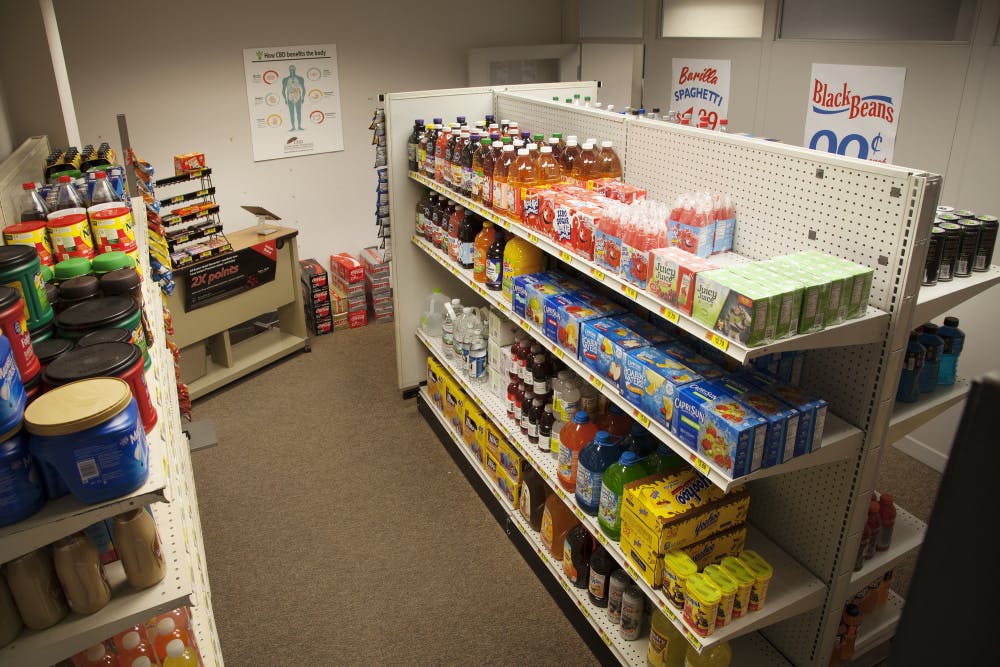Two professors in the Gillings School of Global Public Health are implementing new interdisciplinary tactics to conduct research like never before.
Marissa Hall and Lindsey Smith Taillie collaborated to create the UNC Mini-Mart — a laboratory space that was converted into a replica of a real convenience store — to study how obesity-prevention policies would work in a realistic but controlled setting. The mart is located at UNC Center for Health Promotion and Disease Prevention.
Hall — an assistant professor of health behavior at the UNC Gillings School of Global Public Health and a member at Lineberger Comprehensive Cancer Center — brings a research specialty of analyzing how certain warning labels and policies can influence purchasing habits.
Her background combines with the nutrition epidemiology expertise of Taillie — an assistant professor of nutrition at the UNC Gillings School of Global Public Health and a fellow at Carolina Population Center. Together, they can examine how those buying habits influence consumer health.
“Lindsey and I have been having great collaborations. I think because we don’t overlap a lot in our skillsets,” Hall said. “We both bring different things to the table. So it really is a perfect combination.”
Their method of research combines the control of experiments with the real-world exposure to policies that is characteristic of observational studies.
“With this UNC Mini-Mart, we really wanted to bridge these two types of studies and essentially create a lab that allows us to have good experimental control that’s necessary for understanding causal relationships, but also lends realism to the policies and makes them feel real to people,” Hall said.
Hall and Taillie said they spent many months building the mart — even going to auctions and appliance sales to purchase equipment and fixtures — to create a fully functional mart with packaged and refrigerated items that subjects in the study could actually purchase and take with them. They hoped to increase the realism of the study to improve the validity of the findings.
Hall said that they are looking at two intervention methods to prevent childhood obesity in the U.S. and globally, including making unhealthy drinks more expensive and putting warning labels on those drinks.




